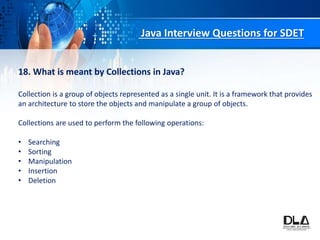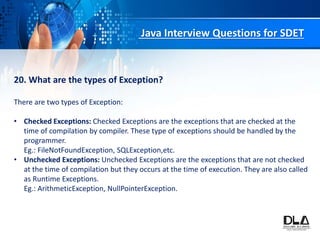The document provides 20 basic Java interview questions for software development engineers in test (SDET) roles. The questions cover topics such as Java access specifiers, object-oriented programming principles, the differences between inner classes and subclasses, overloading and overriding methods, threads and exceptions, and collections. The document is intended to help SDETs prepare for technical interviews by providing example questions and explanations of core Java concepts.
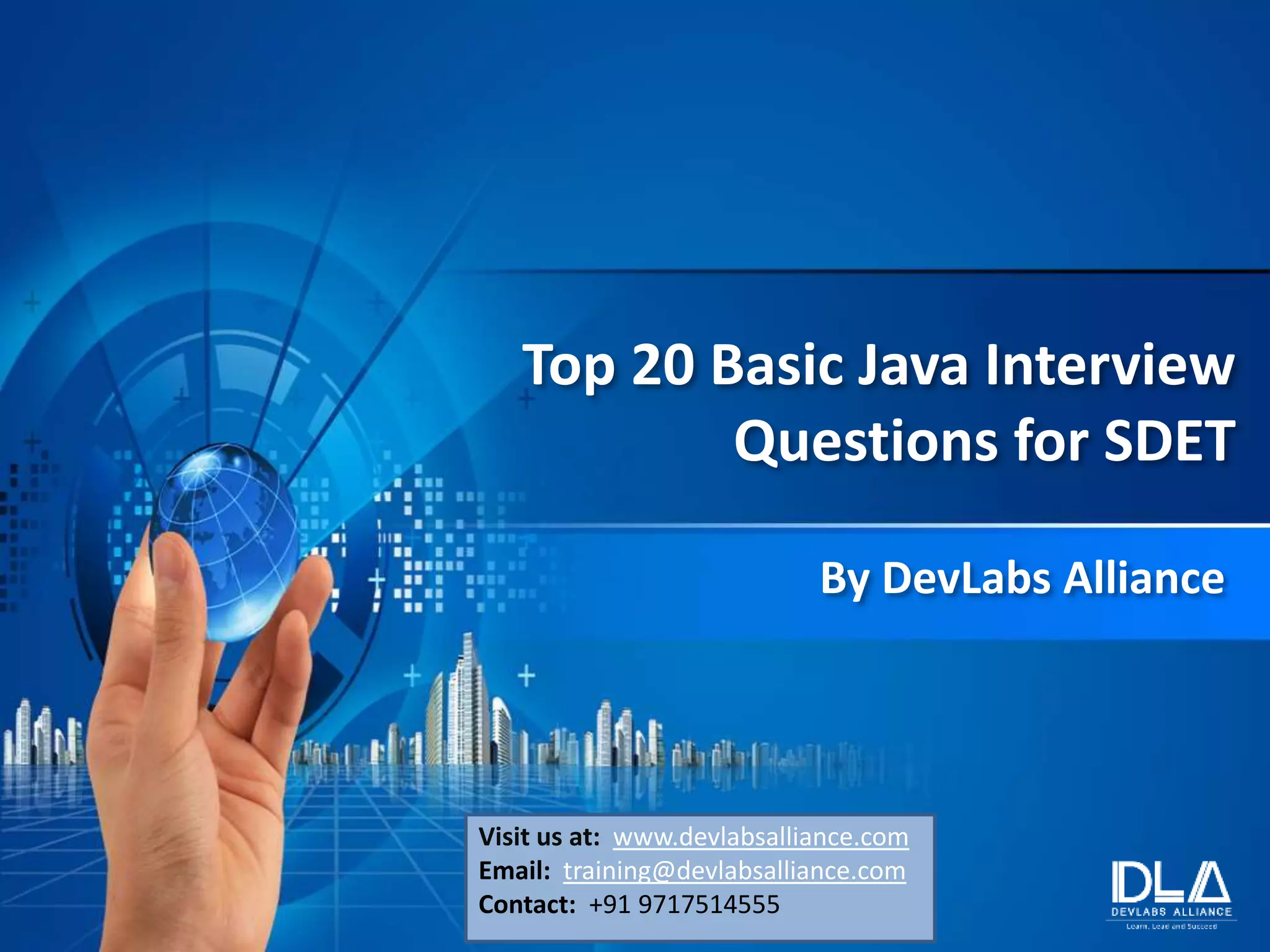
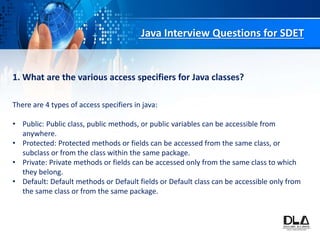
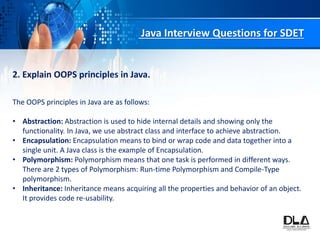
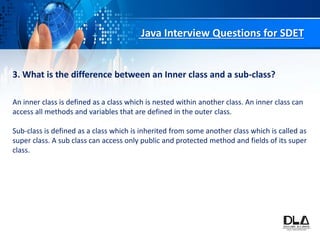
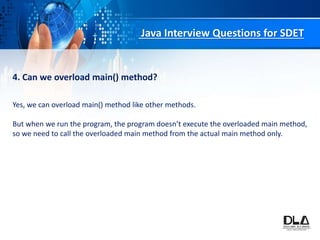
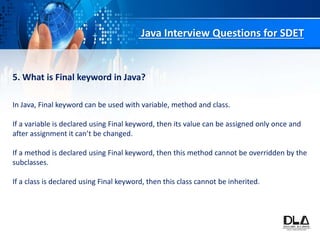
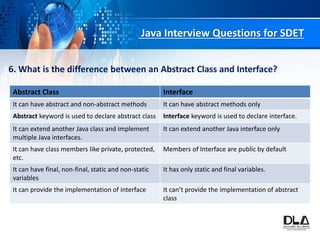
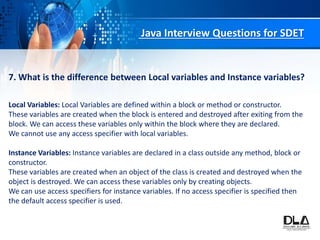

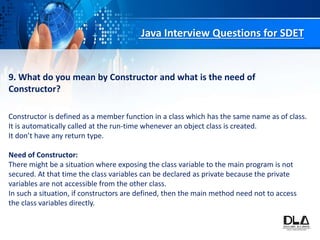
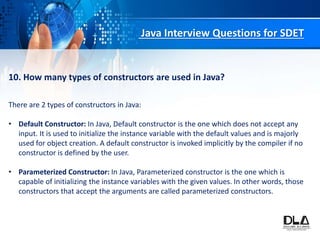
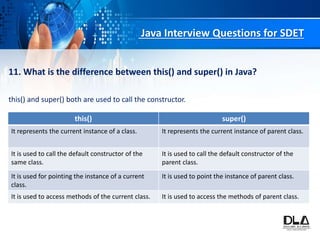
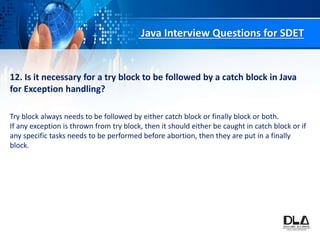
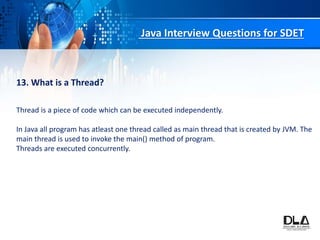
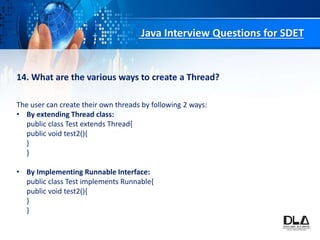
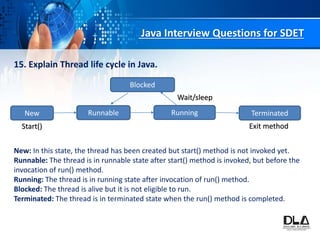
![Java Interview Questions for SDET
16. What is Method Overloading?
Method Overloading is a feature that allows a class to have more than one method with
the same name and different parameters.
We can overload the method by either changing number of arguments or changing the
data type.
public class Test{
public static int add(int a, int b) {return a+b};
public static int add(int a, int b, int c) {return a+b+c};
}
public class TestOverloadingMethod{
public static void main(String[] args){
System.out.println(Test.add(10,11));
System.out.println(Test.add(10,11,12));
}
}](https://image.slidesharecdn.com/devlabsalliancetop20basicjavainterviewquestionsforsdet-190730114717/85/Top-20-basic-java-interview-questions-for-SDET-17-320.jpg)
![Java Interview Questions for SDET
17. What is Method Overriding?
Method Overriding is a feature that allows a sub-class(child class) to have the same method
(with same name and same parameters) as that in the super class(parent class).
Method Overriding is used for run time polymorphism.
public class Vehicle{
void run(){System.out.println("Vehicle is running");
}}
//Creating a child class
class Bike extends Vehicle{
public static void main(String args[]){
//creating an instance of child class
Bike obj = new Bike();
//calling the method with child class instance
obj.run();
}
}](https://image.slidesharecdn.com/devlabsalliancetop20basicjavainterviewquestionsforsdet-190730114717/85/Top-20-basic-java-interview-questions-for-SDET-18-320.jpg)
